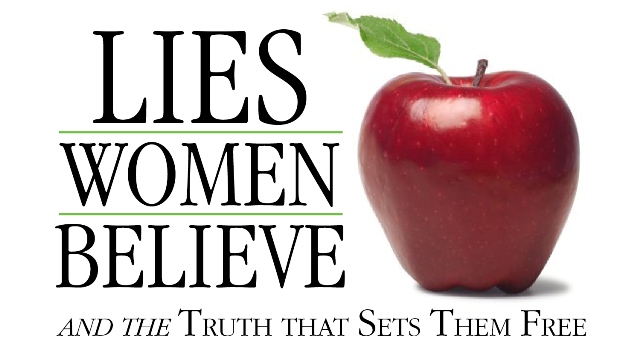I hope all my American readers had a happy Labor Day– mine was spent reading Robert Jordan’s Winter’s Heart from the Wheel of Time series instead of reading for the Lies Women Believe review. I appreciated putting it off by a few days. Thankfully, this chapter was short.
I DON’T HAVE TIME FOR EVERYTHING I’M SUPPOSED TO DO
I think this might be the only time Nancy and I come closest to actually agreeing on something, although the why behind it is, of course, drastically different. Here’s the crux of the section:
There is virtually never time in a twenty-four-hour day for me to do everything that is one everyone else’s “to do” list for me. There is seldom time to do everything on my own “to do” list. I cannot meet with every person who wants an appointment, call every person who wants to talk, counsel every person who has a need … It’s just not physically possible.
What a relief to know I don’t have to do all those things! (119)
Nancy goes on to explain that there is time in every day for us to do what God wants us to do, and we should prioritize the things God wants, not what we want or what other people want. This is where we differ– I agree with the premise that there’s more often more things to be done than I can accomplish in a day, especially on days like today when I’m having neck spasms so severe I’m having difficulty standing upright. I wanted to run errands and bake bread, but instead I spent most of today on muscle relaxers and heating pads. Not being able to do those things is totally fine, and I’ve learned to let them slide without guilt.
The problem I have with this section is that Nancy says “just do the things God wants you to do, and you’ll be fine!” without ever explaining how exactly we’re supposed to figure that out. I grew up having a problem with this, really– people were obsessed with “discovering God’s will for your life,” but it seemed mighty convenient how often “God’s will” perfectly aligned with “thing I feel passionately about” or “thing that will make me look good” or “thing that will make me powerful.”
I think, in general, that God’s will includes things like “drawing all peoples to themself” and “redeeming the world,” but when it comes down to the brass tacks of do I clean my apartment today or research my book, it seems a little ridiculous to expect God to have an opinion.
Realistically, I think we all order our priorities according to what we value and our ethics. I believe tackling this book is important, so it’s what I’m doing instead of laundry right now, and if I don’t have the energy to do laundry later tonight I’m ok with that. I believe that trying to do the will of God every day is important, but that’s summed up for me in love your neighbor as yourself, and I just try to operate by that principle.
I CAN MAKE IT WITHOUT CONSISTENT TIME IN THE WORD AND PRAYER
I hope those of you who had a different experience than me can chime in, because, honestly, I never understood all the fuss around “quiet times” or “devotions.” I read my Bible and prayed pretty consistently through my teen and early college years, but when my schedule filled up with 8a-6p classes, I stopped doing that regularly and never noticed the difference. I tried picking it up again a few times over the years, usually out of guilt, but it didn’t contribute meaningfully to my day so I’ve never gotten back into the habit.
Nancy tries to argue that people will be ineffectual and frustrated without this, but that just seems really Christian-centric to me, and easily disproved. Billions of people don’t read the Bible and pray to the Christian deity every day, and they seem to be doing just fine, while many Christians do have dedicated time for this and don’t seem to fit Nancy’s definition of success– they’ve been depressed, burnt out, worried, stressed, and all the rest of the things she says that devotions will prevent.
A CAREER OUTSIDE THE HOME IS MORE VALUABLE AND FULFILLING THAN BEING A WIFE AND MOTHER
The way she’s phrased this is extremely frustrating because it’s misleading. If she actually meant what those words say we might actually agree on this. I and many feminists believe that motherhood (and fatherhood! stay-at-home-dads are a reality!) can be just as fulfilling as a career– especially if a woman does not feel particularly fulfilled by her realistic career options. We might be troubled by societal patterns and the way stigmas contribute to women leaving the paid workforce, but most of the feminists I’m aware of fight for things like maternity leave and subsidized daycare in order to balance the demands on mothers. However, that’s not what Nancy actually means. Instead, she asserts that the “lie women believe” is that “a career outside the home is an option.”
Some feminists have denigrated those who choose stay-at-home-motherhood, or have written manifestos on why all women have an obligation to be in the paid workforce, but in my experience, those positions tend to be outliers.
However, those outliers are not who Nancy addresses; instead, she misrepresents feminist arguments about the unpaid labor involved in housework and childrearing by saying that feminists have “devalued homemaking to something less than that of a serf” (125). The reality that it’s mostly women who do the housework and childrearing and that this is essentially a form of slave labor–in that it’s culturally coerced and uncompensated–isn’t a statement about its ineffable value. In fact, most feminists have fought to equalize the distribution of household and childrearing tasks by forcing our culture to recognize how important these things are– so important, in fact, that they’re not beneath men doing them, too.
She spends a lot of time saying that it’s impossible for women to “have it all” in the sense of having a career and still shouldering all the demands of homemaking and mothering– and she’s right. The solution, however, isn’t to force all women out of the paid workforce, but to elevate these things to more than just “women’s work.” Men should leave work to take care of sick children just as often as women. Men should take off to get their kids to soccer games. Men should stay up half the night with the colicky baby. Men should learn to cook. Men should shoulder an even share of housework.
It is impossible for women to “have it all” as long as the definition for “having it all” is “be successful at work while still being maintaining a Norman Rockwell version of housewifery.”
She makes a few other frustrating comments, things like saying feminism has pushed our elderly into old folk’s homes without even bothering to acknowledge the extending life spans that make it impossibly difficult for those without medical training to monitor their care; or blaming the rise of the two-income household completely on feminism instead of being honest about the rising income disparities that are forcing middle-class families to take on more labor to maintain a middle-class position, but those are so wrong they’re not even worth the attention.
In short, once again it seems impossible for conservative evangelicals to attack feminism without being misleading, deceptive, and ignorant.



